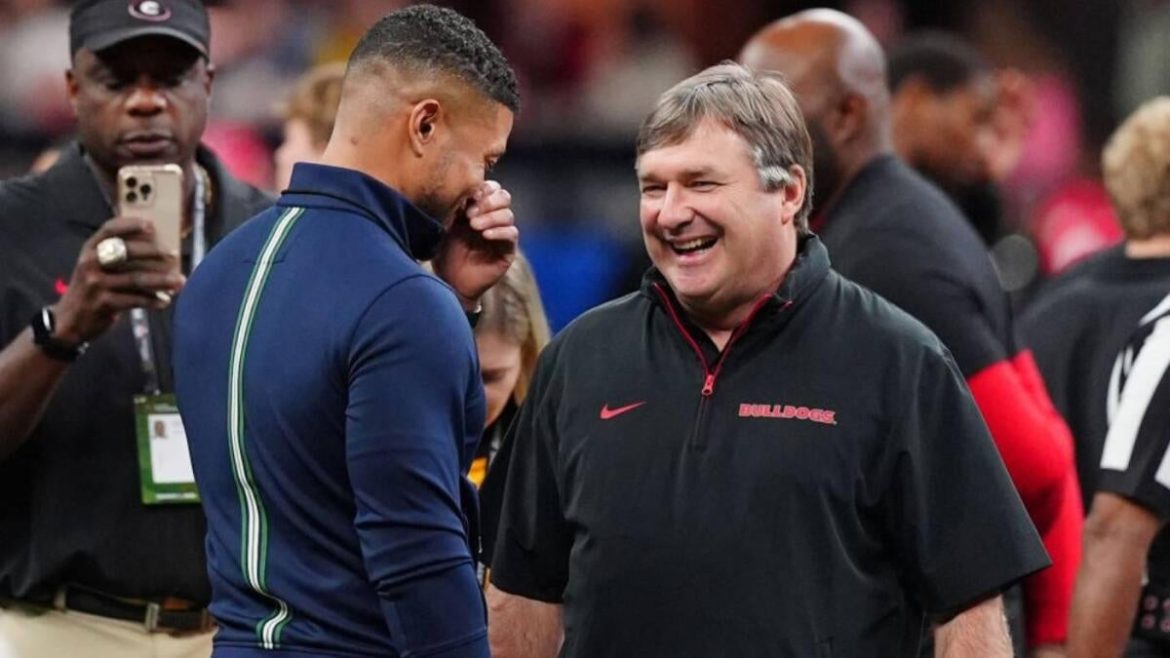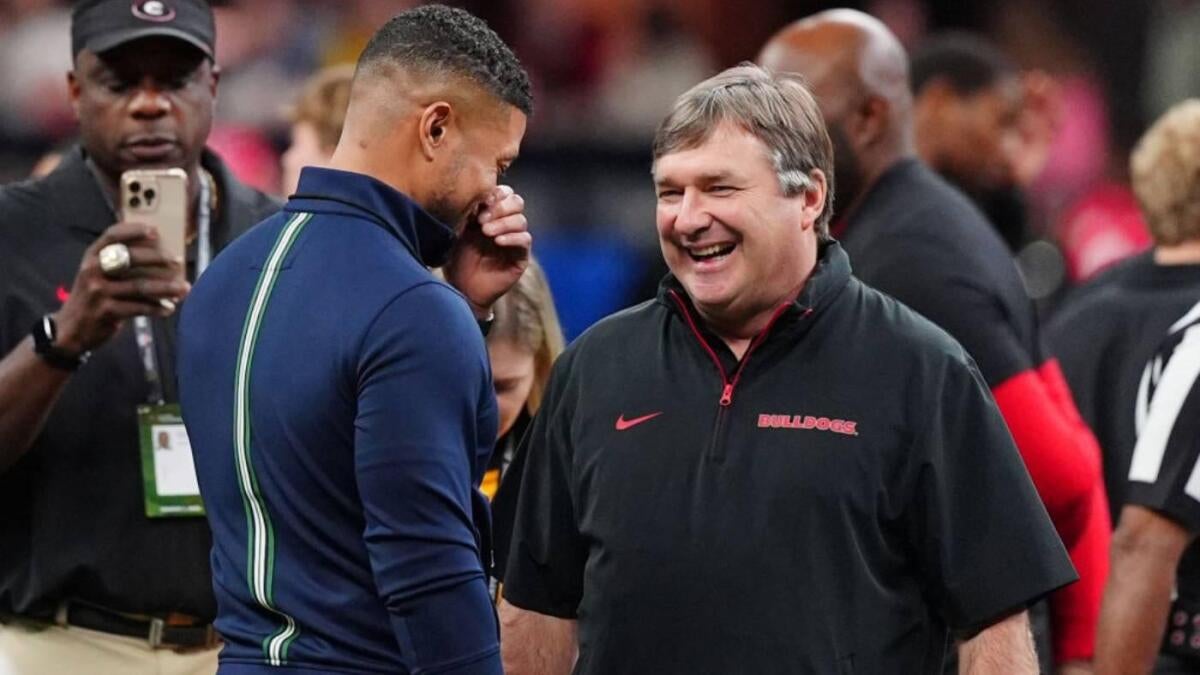Exploring CBS Sports 2025 College Football Coach Rankings: Conference Biases, Polarizing Figures, and Emerging Trends
The annual CBS Sports college football coach rankings for the 2025 season have stirred notable discussion across the fan base, media, and coaching communities alike. Beyond simply listing top coaches, these rankings reveal underlying conference biases, uncover polarizing names in the coaching realm, and spotlight figures who draw passionate admiration or notable criticism. This analysis delves into the nuances highlighted by the CBS rankings and how they reflect broader trends impacting college football’s coaching landscape heading into 2025.
Conference Biases Embedded in the Rankings
One of the most compelling patterns emerging from CBS Sports’ rankings is the apparent conference bias favoring coaches from Power Five conferences, especially the Power Four—namely the SEC, Big Ten, ACC, and Big 12. While the Power Five commands the spotlight for recruiting, media coverage, and playoff contention, CBS experts have emphasized this further by placing a disproportionate number of coaches from these conferences into top spots.
For example, the Big Ten—home to 14 teams—boasts six coaches within the top 25 of these rankings, underscoring the high regard and expectations placed on this “premier Midwestern” league. Similarly, the SEC continues to dominate with figures like Georgia’s Kirby Smart firmly anchored near the summit, ranked No. 2 for the second consecutive year. This pattern suggests that coaches from these powerhouses receive inflated evaluations compared to similarly successful counterparts in Group of Five schools.
The “Group of Five” coaches, despite pockets of brilliance, are systematically ranked lower, reflecting CBS Sports analyst David Cobb’s recent commentary on the challenges inherent to G5 programs versus Power Four programs. Coaches like Jamey Chadwell of Coastal Carolina—who achieved remarkable success including an undefeated regular season and national recognition during 2020—still face hurdles in climbing beyond mid-tier rankings due to the structural inequalities CBS Sports and others seem to acknowledge.
Polarizing Names: Admired and Controversial Figures
The 2025 coach rankings identify several polarizing figures whose evaluations spark substantial fan and media debate. On the ascent is Deion Sanders, whose visibility and charismatic approach have placed him among the headline coaches in the Power Four. Yet Sanders remains a figure who divides opinion, balancing immense popularity with critiques rooted in team performance or off-field narratives.
Additionally, CBS Sports’ “2025 Hater of the Year” label brings a provocative spotlight to certain coaches who evoke collective frustration or disdain within fanbases or analysts. While discrete names of this category tend to fluctuate year-over-year, such labels underscore the emotionally charged perspectives around coaching styles, program trajectories, and media narratives.
An example of polarizing views extends to NFL coaching evaluations, as seen with CBS Sports lambasting figures like Sean Payton, questioning conventional rankings and popular assumptions by probing deeper into performance metrics. This approach reflects a willingness to disrupt consensus, challenging fans and professionals alike to reconsider their evaluations.
New Faces and Shifting Hierarchies in 2025
The rankings also highlight a clear changing of the guard in college football coaching. Eight new coaches have ascended into the top 25, some climbing over 25 spots from the previous year. This evolution underscores not just a turnover but a changing valuation criteria favoring innovative, rising talents over entrenched veterans.
Coaches like Jeff Brohm, who propelled Louisville with a strong 19-8 record in just two seasons, witness improved placements reflecting performance growth and program revitalization. Meanwhile, established names like Bill Belichick continue to headline discussions, bridging college and professional coaching conversations through their enduring influence.
The inclusion of emerging coaches reshapes fan expectations and signals a more dynamic 2025 coaching landscape, in which adaptability and recent achievements weigh heavily alongside historical prestige.
CBS Sports and the Broader Context of College Football Rankings
CBS Sports’ coach rankings fit into a larger ecosystem of college football evaluations, alongside entities like 247Sports, AP Top 25, USA Today Coaches Poll, and Playoff Rankings. Each survey varies in methodology and focus, but collectively, they shape narratives about team readiness, coaching effectiveness, and conference strength heading into the new season.
For example, CBS Sports has also recently published season team rankings for the ACC, Big Ten, Big 12, and overall Power Five, which dovetail with coaching rankings to give a comprehensive preseason outlook. These rankings are integral to understanding collegiate football’s shifting power dynamics, especially as programs prepare for recruitment cycles, media scrutiny, and playoff positioning.
Conclusion: The 2025 Coach Rankings as a Mirror of College Football’s Complex Landscape
CBS Sports’ 2025 college football coach rankings offer more than a numeric ordering—they reveal underlying biases favoring Power Five conferences, expose the polarizing reputations of certain high-profile coaches, and illustrate a fresh infusion of new leadership reshaping the sport. This intricate tapestry reflects the evolving challenges and triumphs faced by coaches navigating a competitive environment riddled with heightened expectations, media scrutiny, and institutional disparities.
As the 2025 season approaches, these rankings provoke fans and analysts alike to examine not only who is coaching but how factors like conference affiliation, past success, and public perception influence evaluations. The rankings underscore a fundamental truth in college football: leadership excellence is not only about wins and losses but about navigating the complex interplay of performance, perception, and the passion that fuels the sport.





